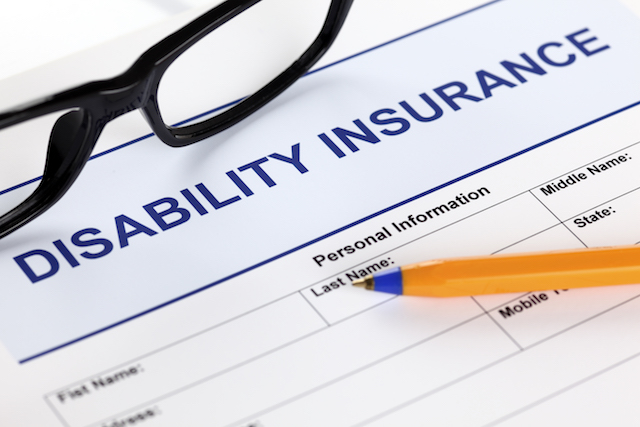How to Write a Successful Appeal Letter for Long-Term Disability
While having insurance provides an important financial safety net for unexpected accidents, insurance companies are notoriously difficult to deal with. If your long-term disability insurance claim is denied, an attorney can help you write an effective appeal letter.
A successful appeal letter for long-term disability claims should directly respond to the reasons cited by the insurance company for the denial. Vague statements about why you disagree or need the claim approved are unlikely to help. You should include the specific reasons why your claim was denied and why the insurance company’s decision is incorrect. Use language taken directly from your policy to make your point. If necessary, include additional information about your medical history and condition that might strengthen your claims. We need the denial letter from the insurance company and your policy before writing your appeal letter. If the denial does not align with the policy terms, you have a stronger case for appeal. You should avoid vague or unnecessary information, as it will likely not help you.
Get a private case evaluation for free when you call Young, Marr, Mallis & Associates at (215) 515-2954 and speak to our disability attorneys.
Writing a Successful Appeal Letter After Your Long-Term Disability Claim is Denied
When an insurance company denies a claim, they must send the claimant written notice of the denial. The denial letter must include the specific reasons why the claim is denied. Insurance companies cannot just deny a claim with no explanation. If your denial letter contained no explanation of why your long-term disability claim was denied, call an attorney immediately.
When writing an appeal letter, it should be a direct response to the denial letter. If the insurance company lists several specific reasons why your claim was denied, your letter should address each of those reasons specifically and directly. If even one of the insurance company’s reasons is left unaddressed, your appeal letter might not be successful. This can be difficult for people whose claims are denied on numerous grounds. Even so, an attorney can help you write an effective appeal letter and hopefully get your long-term disability claim approved.
Do not write some vague statement about why you need coverage. You might be upset about the denial, as it means you must wait even longer before getting financial assistance from the insurance company. As such, it can be tempting to write a long, angry letter about why the insurance company is heartless or why you need these benefits. Your feelings are certainly valid, but broad statements that do not specifically address the denial will not help you write an effective appeal letter.
What to Include in Your Appeal Letter After Your Long-Term Disability Claim is Denied
First, our disability attorneys need to lay out the reasons you were denied. What grounds did the insurance company claim when they denied you? Be specific. If the insurance company denied your claim for three specific reasons, we must include each of those three reasons in your appeal letter.
Next, we should include language from your policy that supports your coverage. Keep it specific to the reasons why you were denied. Do not be vague. What does the policy state regarding the reasons cited by the insurance company? We need to establish that your policy covers you.
Including additional details about your medical condition and future prognosis might also be a good idea. It is possible that the insurance company does not believe you are disabled or that your condition does not qualify for long-term disability benefits. This sometimes happens when claimants do not provide enough information about their condition when they initially submit a claim. Providing additional details that prove you are disabled might be helpful.
We can also include contact information for you and your doctors. The appeals process can sometimes be a bit complex, and the insurance company might contact you or your doctors for more information.
What You Need to Begin Writing an Effective Appeal Letter for a Long-Term Disability Claim
We first need the denial letter to begin writing the most effective appeal letter possible. As mentioned before, the denial letter should spell out exactly why the insurance company denied your claim. We need this information to build your appeal case. If the letter is too vague or unclear, your attorney can help you ask for clarifications from the insurance company. It would be best if you acted quickly, as getting clarifications might eat up more of your time.
Next, we need a copy of your policy. You should make direct references to it throughout your appeal letter. Remember, the policy controls whether certain claims are approved or denied.
We might also need some additional proof of your disability. Have other entities or organizations officially recognized your disability? For example, the Social Security Administration might recognize your disability for the purpose of getting Social Security Disability Insurance benefits. If you have documentation from the SSA, you can provide copies to the insurance company. Basically, if your condition is good enough for the federal government, it should be good enough for your insurance company.
Things to Avoid When Writing an Appeal Letter for a Long-Term Disability Claim
To make sure your appeal letter is as strong as possible, you should avoid making vague statements. You might want to stress how important long-term disability benefits are for your survival, but this should not be the focus of the letter. Statements should be specifically about the issues raised in the insurance company’s denial letter and how they do not align with the terms and conditions of your policy.
Also avoid information that does not specifically address the reasons cited by the insurance company for the denial. While additional information might be helpful in some cases, you must first respond to the reasons why your claim was denied. If the insurance company does not base the denial on a lack of medical information, there might be no need to include additional medical information. Either way, talk to your lawyer about including extra information.
Do not wait! Time is of the essence. The sooner you get started, the better. Also, avoid doing it alone. Call a lawyer for help.
Contact Our Disability Attorneys for Legal Support Now
Get a private case evaluation for free when you call Young, Marr, Mallis & Associates at (215) 515-2954 and speak to our Allentown, PA disability attorneys.






























